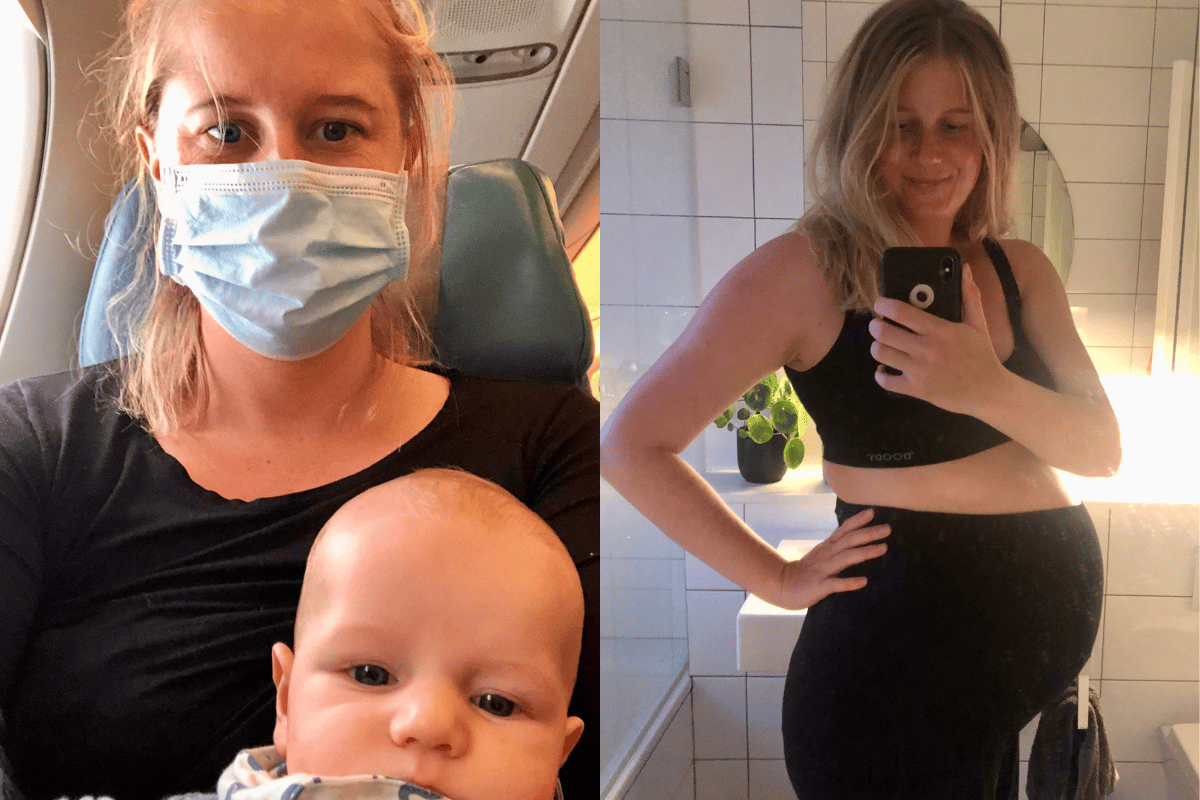
The other day I was visiting my sister-in-law, who has just had her second baby. As a new mum myself, I know how lovely it is when visitors bring a delicious, home cooked meal. So I had prepared a nutritious and wholesome dish (spinach and ricotta cannelloni) and I brought the same ‘breastfeeding snacks’ that I had also loved (cookies and freshly squeezed juice).
I felt a little nervous before driving to her house, a bit on edge. I realise now that I was feeling floored; that with all the treats, I also brought an open wound, which was in the process of healing.
And by caring for my sister-in-law, I was also caring for myself.
Watch: How to be a woman in 2023. Post continues below.
More than 300,000 women gave birth in Australia in 2021. I was one of those women, who was pregnant, gave birth and cared for a newborn during the strict COVID lockdown regulations that year.
It was a time that was full of fear, stress and anxiety. It hung over me like a big, fat cloud. I felt isolated, lonely and sad at a time in my life when I was literally creating life. I remember feeling upset to be so far away from my family who are all in Denmark, which is also where I’m from. It was not all bad, of course. There were glimpses of light and moments of true joy. But when I look back, it feels like there were more moments filled with angst and despair.

Top Comments